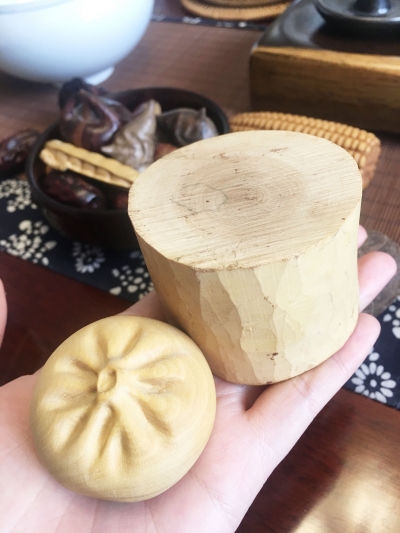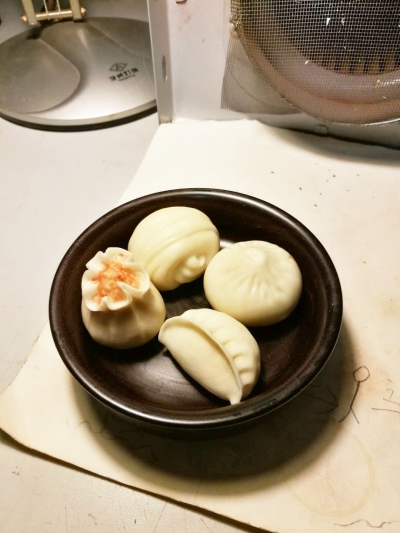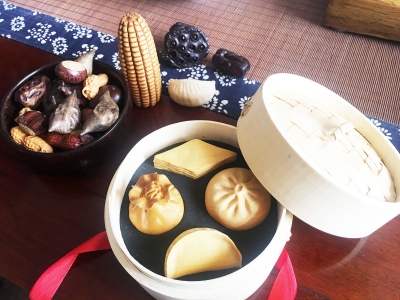
Zhou Wei from Yangzhou, Jiangsu province shows off a baozi made from boxwood, his preferred material for making wooden sculptures, due to its small pinholes and similar texture to steamed flour food. [Photo/xhby.net]
If you were to complain that the food offered by Zhou Wei from Yangzhou, Jiangsu province was as hard and unpalatable as wood, you would be right.
Various types of wood carefully carved into the shapes of a number of delicous zaocha (early breakfast) food items, including baozi, shaomai, zhengjiao, and qiancenggao, are a common sight at Zhou's studio.
The 46-year-old man, who describes himself as having authentic Yangzhou habits and tastes, aspired to combine zaocha, an institution in Yangzhou, with his hobby – woodcarving.
Zhou said he enjoys house decorating and gardening, and started making these wooden sculptures six years ago.
"Boxwood, with its small pinholes and a texture similar to steamed flour food, is the ideal material for my zaocha series," Zhou said.
He has also tried many other types of wood, such as rosewood and ivory nut, which he said have a brighter color and more luster, but tend to be hollow inside and have cracks on the surface.
"Look at this, a freshly polished baozi, still with some wood chips on it," Zhou said, “It is made of leftover boxwood materials, check it out, it looks so much like a real baozi, with its skin wrapped in too much alkali!”
As to how he has remained happy being a wood-carver for so many years, Zhou humbly attributed it to his job.
"I work with various types of woods every day. I have also visited Fujian province a couple of times. Many high-quality woods are produced there, and many wood-carving masters live there."

A set of Zhou's zaocha series, made from ivory nut, is better in both color and luster. [Photo/xhby.net]
With his skills sharpening day by day, Zhou wants to upgrade from "merely turning trash into treasure" to "realizing mass production".
"Intelligent manufacturing is key," he said.
With the help of a threading machine and a flexible shaft machine, he went from spending 15 hours on a single piece, to completing over 500 zaocha sets per month.
His works have been warmly received by locals. Various teahouses, museums, foodies, and even personal collectors have reached out to him, eager to get their hands on his novel works of art.
"I was born and raised in an old neighborhood in Yangzhou. I have a special affection for zaocha, and I just want to pay tribute to my beloved culture in my own way," Zhou said.

A set of Zhou's zaocha series, made from boxwood. [Photo/xhby.net]